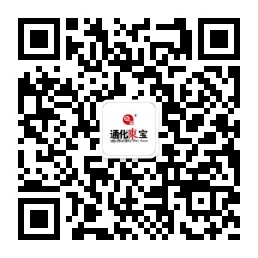Contact:
4008465777
Tonghua Dongbao: First subject enrolled in phase I clinical trial of novel URAT1 inhibitor (THDBH130 Tablets) in China
In December 2021, Dongbao Zixing (Hangzhou) Biopharmaceutical Co., Ltd. ("Dongbao Zixing"), a wholly owned subsidiary of Tonghua Dongbao Pharmaceutical Co., Ltd. ("the Company" or "Tonghua Dongbao") received the notice of approval from the National Medical Products Administration (NMPA) for the clinical trial of its URAT1 inhibitor (THDBH130 Tablets) for treating gout/hyperuricemia. The phase I clinical trial has been initiated in China, and the first subject was successfully enrolled the other day.
By this time, Tonghua Dongbao officially moves its gout/hyperuricemia medicine from design to clinical trials. As one of the Company's novel drugs, the URAT1 inhibitor is also among the first batch of drugs that help the Company venture into the gout/hyperuricemia treatment domain. So, the phase I clinical trial of URAT1 inhibitor is a pivotal step in the Company's gout/hyperuricemia drug R&D plan. It will provide a scientific basis for subsequent clinical study protocols and decisions and provide important information for the R&D of related drugs in the future. The primary purpose of the phase I clinical trial is to assess the safety and tolerability of the drug, and the secondary purpose is to find out its pharmacokinetic and pharmacodynamic (PK/PD) properties and mechanism of food-drug interactions.
THDBH130 tablets are a highly active, selective, and safe inhibitor of the uric acid transporter, URAT1. The drug can increase uric acid excretion with a clear-cut mechanism of action, high target selectivity, low starting dose, and few side effects.
The prevalence of hyperuricemia has increased in China, especially among young people, in recent years. Gout has become the second most common metabolic disease after diabetes. The White Paper on Hyperuricemia and Gout Trends in China (2021) released by CBNData shows that the overall prevalence of hyperuricemia and gout in China is 13.3% (about 177 million patients) and 1.1% (about 14.66 million patients), respectively. Hyperuricemia and gout can lead to a variety of complications, which are highly likely to include hypertension, fatty liver, chronic kidney disease, and cardiovascular disease.
China's gout therapeutics market is promising. According to data from Yaozhi.com, in 2020, the sales of gout drugs in urban public hospitals and retail pharmacies in China were RMB 1.91 billion and RMB 830 million, respectively. Chinese patients have an urgent need for effective and safe gout drugs. According to the Guidelines for the Combined Treatment of Hyperuricemia and Gout, the urate-lowering drugs available on the market show remarkable effects on gout. But the need for long-term treatment and a large number of adverse effects lead to poor medication adherence and hence recurrent gout attacks. The Company expects this URAT1 inhibitor to achieve desirable results in clinical trials and provide a new and better option for patients.










